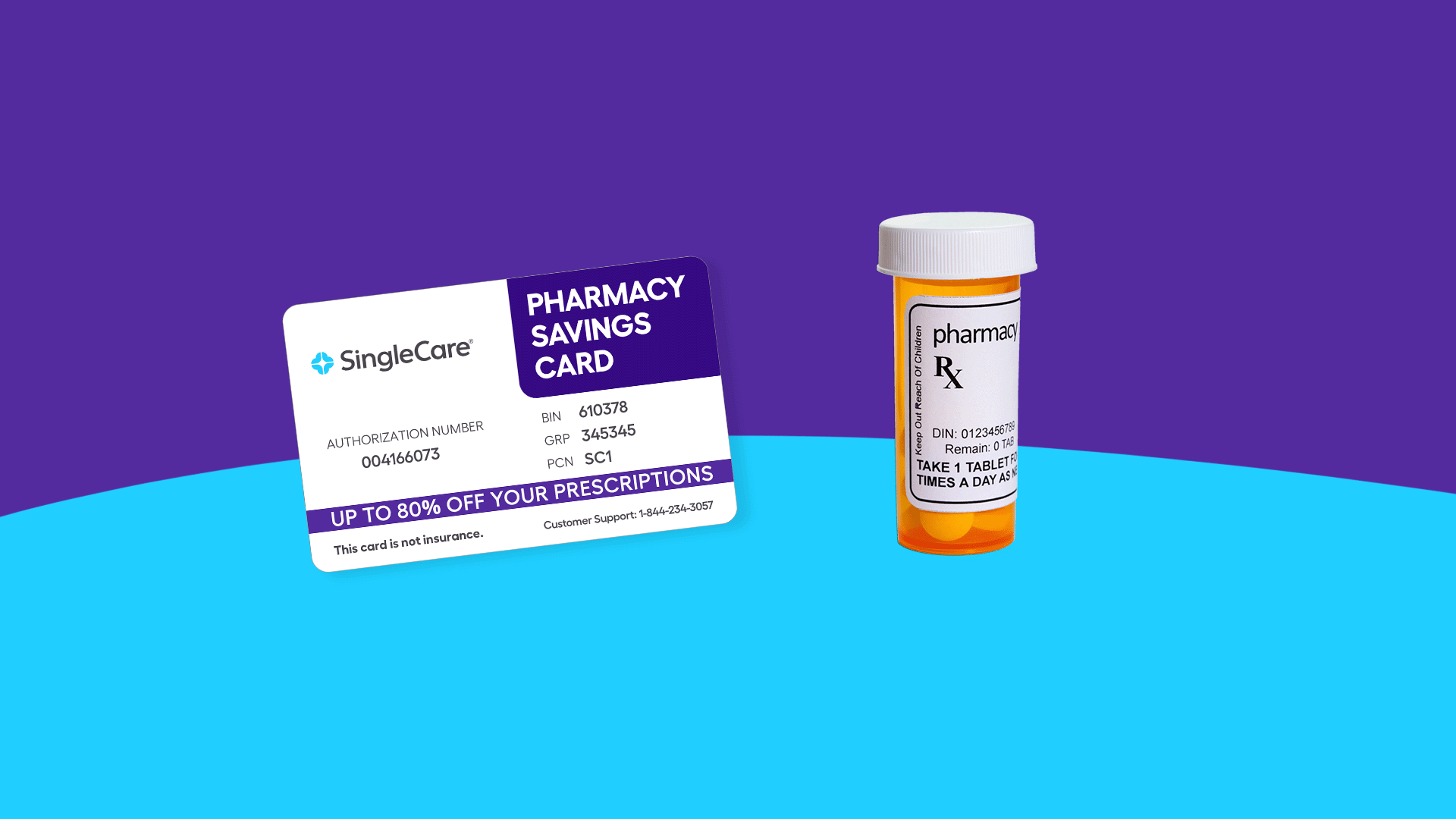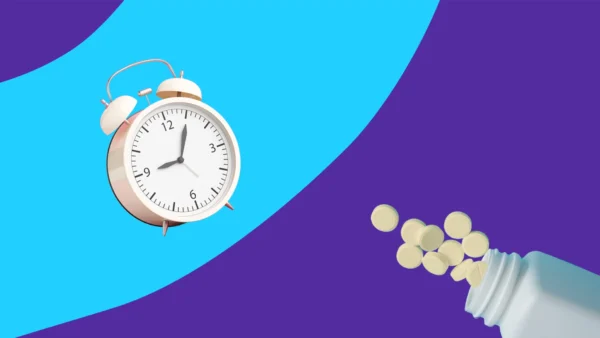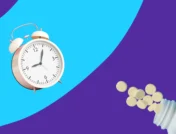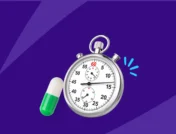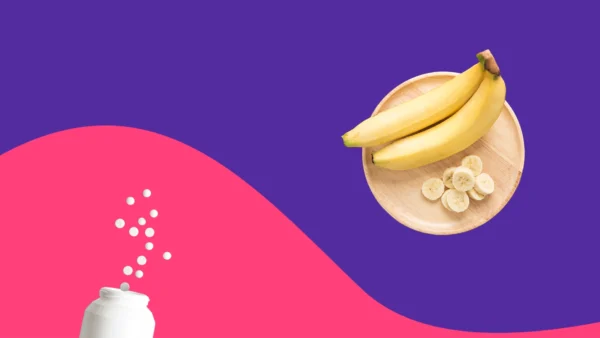Insurance coverage | Costs with insurance | Costs without insurance | Compare prices | Savings | Additional ADHD costs
As the prevalence of attention-deficit hyperactivity disorder (ADHD) continues to increase, so does the demand for ADHD medication. The global ADHD drug market is expected to reach $24.9 billion by 2025, according to a report by Grand View Research. With more than 6 million children in the United States alone diagnosed with ADHD, and 77% of those cases medicated, it’s no wonder the market is booming.
“ADHD is categorized as a mental disorder,” says Lea McMahon, the chief clinical officer at Symetria Recovery. “This disorder becomes prevalent in the early years of an individual and may continue into adulthood. ADHD affects your physical behavior, for example, how you sit or pay attention to a specific task.”
But what does all this growth mean for the consumer? Are ADHD medications becoming more affordable or are they getting pricier? Let’s look at ADHD medication prices, whether insurance typically covers their cost, and ways to save money on your necessary prescriptions.
RELATED: ADHD medication and children
Does insurance cover ADHD medication?
Most insurance plans (including Medicaid and Medicare) with prescription drug coverage will cover a percentage of the cost of ADHD medication.
If a generic version of a drug is available, the insurance plan is more likely to cover the generic and not the brand-name drug. For example, your plan may cover amphetamine-dextroamphetamine (generic Adderall) but not brand-name Adderall. Newer drugs, such as Qelbree, don’t have generic versions available yet and are less likely to be covered by insurance.
In some cases, especially in cases of brand-name drugs with no generic alternative, insurance requires prior authorization before covering ADHD medication. This means your healthcare provider will need to provide information to the insurance company about why you need the medication and how it will be used to treat your health condition. Prior authorization is often required by Medicaid for children who have been prescribed ADHD medication.
Health insurance companies have their own rules and regulations for ADHD medication coverage. Each plan has a list of covered drugs, called a formulary. Some plans don’t provide insurance coverage for certain ADHD medications or may require you to try a different medication first. You’ll either have to submit an appeal for coverage or ask your healthcare provider to switch to a medication that is included in your plan’s formulary.
How much does ADHD medication cost with insurance?
Insurance, Medicare, or Medicaid may not completely cover the cost of your prescription. The cost of ADHD medication with insurance will likely be higher before you reach your plan’s deductible. After you reach your deductible, your insurance will probably pay more or even completely cover the cost of your medication for the rest of the calendar year.
Another factor that affects ADHD medication prices with insurance is your plan’s formulary. The formulary ranks drugs in a tier system. The higher the tier, the more you’ll pay for the drug. Generic medications are usually lower tier drugs and, therefore, have a lower copay or coinsurance. Brand-name drugs are typically higher tier and more expensive.
How much does ADHD medication cost without insurance?
There are several types of FDA-approved drugs used for ADHD treatment. Each medication works a bit differently and has its own set of side effects. The cost of ADHD medication also varies depending on the type of drug and the prescribed dosage. Common drug classes used to treat ADHD include stimulants, non-stimulants, antidepressants, and other drugs used off label.
“Stimulants have shown promising results when treating individuals with ADHD,” Dr. McMahon explains. “Ritalin, Adderall, and Dexedrine are classified under this category.” Most stimulants are available in affordable generic versions and extended-release formulations.
Some extended-release ADHD medications are taken once a day, whereas immediate-release ADHD meds may be taken two or three times a day. The cost of ADHD medication can increase with the frequency of doses. For example, a one-month supply of immediate-release Adderall can contain up to 90 tablets whereas a one-month supply of extended-release Adderall (Adderall XR) contains just 30 tablets.
Use the ADHD medication price chart below to compare prices of popular prescriptions. Overall, the most expensive ADHD medication on our list is the antidepressant, brand-name Wellbutrin XL, which costs around $2,582 per 30, 300 mg tablets. That’s around $86 per tablet. The most expensive stimulant medication for ADHD is brand-name Dexedrine, which costs around $1,690 per 60, 15 mg capsules. That’s around $28 per capsule.
Overall, the cheapest ADHD medication on our list is the antidepressant, nortriptyline (generic Pamelor), which costs $32 per 30, 25 mg capsules or about $1 per 25 mg capsule. The cheapest stimulant listed below is generic Ritalin, which costs $66 per 60, 10 mg tablets or about $1 per 10 mg tablet.
Retail ADHD medication prices |
|||
|---|---|---|---|
| Drug name | Cost per month | Cost per pill | Free coupons |
| Stimulants | |||
| Adderall | $315 per 30, 20 mg tablets | $10.50 per 20 mg tablet | Save on Adderall |
| Generic Adderall (amphetamine-dextroamphetamine) | $120 per 60, 20 mg tablets | $2 per 20 mg tablet | Save on generic Adderall |
| Adderall XR | $343 per 30, 30 mg capsules | $11 per 30 mg capsule | Save on Adderall XR |
| Generic Adderall XR (amphetamine-dextroamphetamine ER) | $227 per 30, 30 mg capsules | $7.50 per 30 mg capsule | Save on generic Adderall XR |
| Dexedrine | $1,690 per 60, 15 mg capsules | $28 per 15 mg capsule | Save on Dexedrine |
| Generic Dexedrine (dextroamphetamine ER) | $193 per 30, 15 mg tablets | $6 per 15 mg tablet | Save on generic Dexedrine |
| Focalin | $120 per 60, 10 mg tablets | $2 per 10 mg tablet | Save on Focalin |
| Generic Focalin (dexmethylphenidate) | $90 per 60, 10 mg tablets | $1.50 per 10 mg tablet | Save on generic Focalin |
| Focalin XR | $495 per 30, 20 mg capsules | $16.50 per 20 mg capsule | Save on Focalin XR |
| Generic Focalin XR (dexmethylphenidate ER) | $270 per 30, 10 mg capsules | $9 per 10 mg capsule | Save on generic Focalin XR |
| Ritalin | $177 per 90, 20 mg tablets | $2 per 20 mg tablet | Save on Ritalin |
| Generic Ritalin (methylphenidate HCl) | $66 per 60, 10 mg tablets | $1 per 10 mg tablet | Save on generic Ritalin |
| Ritalin LA | $390 per 30, 20 mg capsules | $13 per 20 mg capsule | Save on Ritalin LA |
| Generic Ritalin LA (methylphenidate HCl ER) | $228 per 30, 20 mg tablets | $8 per 20 mg tablet | Save on generic Ritalin LA |
| Concerta | $556 per 30, 54 mg tablets | $18.50 per 54 mg tablet | Save on Concerta |
| Generic Concerta (methylphenidate HCl ER) | $228 per 30, 20 mg tablets | $8 per 20 mg tablet | Save on generic Concerta |
| Vyvanse (lisdexamfetamine) | $487 per 30, 70 mg capsules | $16 per 70 mg capsule | Save on Vyvanse |
| Non-stimulants | |||
| Strattera | $535 per 30, 40 mg capsules | $18 per 40 mg capsule | Save on Strattera |
| Generic Strattera (atomoxetine) | $397 per 30, 40 mg capsules | $13 per 40 mg capsule | Save on generic Strattera |
| Kapvay | $549 per 60, 0.1 mg tablets | $9 per 0.1 mg tablet | Save on Kapvay |
| Generic Kapvay | $130 per 30, 0.1 mg tablets | $4 per 0.1 mg tablet | Save on generic Kapvay |
| Intuniv | $352 per 30, 2 mg tablets | $12 per 2 mg tablet | Save on Intuniv |
| Generic Intuniv (guanfacine HCl ER) | $282 per 30, 2 mg tablets | $9 per 2 mg tablet | Save on generic Intuniv |
| Qelbree (viloxazine) | $320 per 30, 200 mg capsules | $11 per 200 mg capsule | Save on Qelbree |
| Antidepressants | |||
| Wellbutrin XL | $2,582 per 30, 300 mg tablets | $86 per 300 mg tablet | Save on Wellbutrin XL |
| Generic Wellbutrin XL (bupropion HCl ER) | $144 per 30, 150 mg tablets | $5 per 150 mg tablet | Save on generic Wellbutrin XL |
| Norpramin | $202 per 90, 25 mg tablets | $2 per 25 mg tablet | Save on Norpramin |
| Generic Norpramin (desipramine) | $50 per 30, 25 mg tablets | $2 per 25 mg tablet | Save on generic Norpramin |
| Pamelor | $1,393 per 30, 25 mg capsules | $46 per 25 mg capsule | Save on Pamelor |
| Generic Pamelor (nortriptyline) | $32 per 30, 25 mg capsules | $1 per 25 mg capsule | Save on generic Pamelor |
| Off-label drugs | |||
| Provigil | $2,344 per 30, 200 mg tablets | $78 per 200 mg tablet | Save on Provigil |
| Generic Provigil (modafinil) | $950 per 30, 200 mg tablets | $32 per 200 mg tablet | Save on generic Provigil |
* Prescription drug prices often change. These are the most accurate medication prices at time of publishing.
How to save on ADHD medication costs
There are several strategies people with ADHD can use to save money on medication costs.
1. Use SingleCare.
SingleCare offers discounts on prescription medications at no cost to you. By using SingleCare’s prescription discount card, you can save up to 80% on the cost of your ADHD medication. For example, 60, 10 mg tablets of generic Ritalin costs less than $10 with a SingleCare coupon. That’s $56 in savings. Anyone can use SingleCare’s free drug coupons regardless of insurance status or income level.
2. Compare prices of ADHD medications at different pharmacies.
The cost of ADHD medications can vary significantly from pharmacy to pharmacy. There are many treatment options available for ADHD. By comparing prices, you may find a more affordable option. Search for your prescription on singlecare.com and enter your zip code to compare drug prices at pharmacies near you.
3. Check the drug’s manufacturer site for rebates.
Drug manufacturers may sometimes offer a rebate or voucher to help offset the cost of their medications. This is especially true for newer medications that recently entered the market. However, manufacturer coupons typically have strict eligibility requirements or are limited to a certain dollar amount.
4. Get a prescription for a 90-day supply of medication.
After you find a medication that treats your ADHD symptoms, consider filling a prescription for multiple months at one time. Although a higher cost upfront, larger refills can help reduce the cost per pill.
5. Switch to an extended-release formulation.
Extended-release medications are designed to be taken only once a day as opposed to two or three times. Switching to a generic, extended-release medication could help you save money. It’ll also reduce the number of times you have to remember to take medication per day.
6. Ask your doctor for an alternative medication.
If you’re taking an expensive ADHD medication, ask your provider for medical advice about affordable alternatives or generic medications that may be available.
7. Find patient assistance programs.
There are several patient assistance programs available that can help offset the cost of ADHD medication. Programs vary in terms of who is eligible and what’s covered.
Other ADHD costs to consider
Aside from the hefty expense of ADHD medications, there are other costs associated with ADHD treatment. It could take months or years to get a diagnosis, and finding the right medication and dosage can be costly and time-consuming.
Cognitive behavioral therapy is helpful for most mental health disorders. As of 2016, 47% of children with ADHD were receiving behavioral treatment. The average cost of therapy for people with ADHD is about $100 and $250 per session.
Most people who are on medication for ADHD need frequent check-ups, often every three months. The cost of these appointments can add up quickly, especially for those with a high-deductible insurance plan or no insurance at all.
Healthcare costs aren’t the only additional expense related to ADHD. Kids and adolescents with ADHD account for roughly $12,000 of extra childhood expenses—excluding treatment costs, according to research conducted by Florida International University. This figure includes expenses such as special education, juvenile justice involvement, and employment.
In adults, productivity costs were estimated to be $6 billion in 2019, according to the ADHD Institute. Employment-related expenses, such as missed work and reduced employment, were also large contributors, with an estimated $1.7 billion in workplace absentee costs.
ADHD treatment can be expensive, but there are ways to save money. By comparing prices at different pharmacies, using SingleCare, or checking for rebates from the drug manufacturer, people with ADHD can find more affordable options. Understanding other costs associated with ADHD treatment—such as therapy and testing—can help to plan for the overall expenses related to this condition and its treatment.



